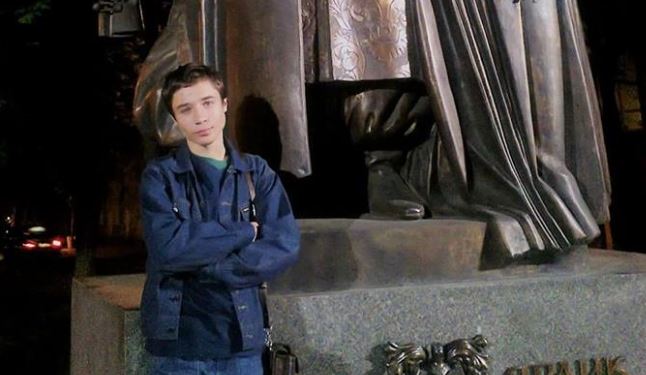The Russian website Meduza has found out more about the alleged spies. Two turned out to be a family from western Ukraine who, according to the Russian FSB, departed for their alleged spying journey to Russia one week (!) after they were recruited. The third one is a coffee connoisseur whose mother says went missing after departing for a business trip to Russia.
Grani.ru, Russia’s independent website, draws a link between this event and the meeting of Sergei Lavrov, Russia’s foreign minister, and Anthony Blinken, the US Secretary of State, within the Stockholm assembly of the OSCE Ministerial Council.
According to Grani.ru, “To ensure successful negotiations in Stockholm, it is necessary to announce the seizure of three ‘Ukrainian spies’; report another severe sentence in ‘the case of Ukrainian saboteurs’; employ missile launchers in Donbas and ensure new victims.” Speaking otherwise, Grani.ru suggests that the seizure of the men was intended to create the illusion of a “Ukrainian threat” to justify Russia’s military buildup on its eastern border and support for its puppet “republics” in Ukraine’s east.
The FSB’s story is that Zinoviy Koval and Ihor Koval are Ukraine’s Security Service (SBU) agents. In the video confession, the men mention this fact.
According to the story, both “agents” were employed by Vasyl Kovalik, a Ukrainian colonel from the state’s western region of Ternopil. Allegedly, Mr. Kovalik ordered the two men to photograph and collect data about strategically vital infrastructure in Russia for the remuneration of $10,000.
Judging from the FSB’s materials, the “recruitment” of the men was unusually fast, the Russian website Meduza reported. Ihor Koval allegedly met with SBU agent Kovalik in one of the city cafes on 6 Octoberand agreed to collaborate with the special services after this one (!) conversation. At home, Ihor had a strange conversation with his father: Zinoviy asked Ihor how his meeting with the recruiter went, and then confessed that he also collaborates with the SBU. Then his mother Iryna joined the conversation and herself admitted that she works for the special services.
Judging Iryna’s social media account in Odnoklassniki, she worked as a village schoolteacher at least till 2017.
One week after the alleged recruitment, in mid-October, Ihor Koval and his father traveled to Russia and were detained. On the FSB's footage, the weapons that Russia's special service found inside the car is visible. A veteran of one of Russia's law enforcement agencies identified one of the guns for Meduza as a Ukrainian-made Saiga. “Weapons for civilian use which can be purchased in any weapons shop,” the interlocutor clarifies.
It remains unclear why these men, why Ternopil, why this sum of money. What is pretty obvious is that a reasonable doubt exists that the FSB coincidentally portrayed the western Ukrainian region as responsible for organizing espionage activities. The western part of the country is often associated with a higher level of Ukrainian patriotism and low tolerance to Russian imperialism.
Meduza also found out about the third detained man, 23-year-old Oleksandr Tsilyk from Kyiv. His mother Milana Tsilyk heard the voice of her son on the FSB video for the first time since he departed for a business trip to Russia in October.
"In tea and coffee matters. He made money on coffee. He became very fond of coffee in recent years: went to festivals, read a lot. He distinguishes these grains even by appearance, he has tried different grinders, the softer ones -- and his opinion matters. They ask him which grains are better [to take],” said the detainee's mother.
After Tsilyk studied to become a banking specialist, he started working not in his profession, but in cafes and bars. Judging by Tsilik's social networks, he really made coffee professionally (including expensive varieties such as Lupaka Kopi), Meduza writes.
The FSB also considers him a Ukrainian agent from the State’s Defence Ministry Central Intelligence Department. According to the FSB, he arrived in Russia with the task of carrying out a terrorist attack. Allegedly, he was subordinate to lieutenant colonel Maksym Kirilovets and planned to launch an act of terrorism by detonating two makeshift explosives.
As unbelievable as it sounds, Oleksandr, his boss, and two other military men arrived in Russia to find locations to hide and send the explosives to Russia.
According to Milana Tsilyk, Oleksandr’s mother, the young man got out of touch in October, when crossing Russia’s border for a coffee and tea-related business trip. She rejects her son’s relation to the military:
“Army is not our thing. He has two little kids. Unfortunately, I do not know but I am confident that all of this is made up. I saw the video [of confession] and I saw him read [from paper]; I saw he had been subjected to pressure. Physical. I have one assumption: they tortured him [...] into confessing to the awful.”
Ukraine’s Security Service stated the accusations are fake.
Russia's FSB stated that the materials obtained as a result of the detention of the Kovalevs and Tsilyk confirm "the terrorist aspirations of the Ukrainian military intelligence to objects on the territory of our country."





